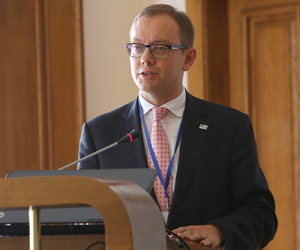Opinions & Interviews
OSCE/ODIHR lauds Belarus’ progress in gender equality

MINSK, 21 June (BelTA) – Marcin Walecki, Head of the Democratization Department at the OSCE Office for Democratic Institutions and Human Rights (ODIHR), praised Belarus’ achievements in gender equality as he spoke with reporters, BelTA has learned.
“Speaking about gender equality, Belarus sets a positive example in this respect,” Marcin Walecki said. He pointed out that the country has a strong social policy aimed at women’s empowerment. He also emphasized that fact that the 2015 presidential election featured a female candidate.
However, the OSCE/ODIHR official noted that there are still some gender stereotypes that hider women’s advancement in political parties and restrict their access to high career positions. Gender parity will be achieved only within 150 years globally and 50 years in the OSCE region. Marcin Walecki believes men should play a more active part in promoting gender equality in professional and economic areas.
UN Resident Coordinator/UNDP Resident Representative in Belarus Sanaka Samarasinha also noted that to achieve gender equality, it is essential to encourage men to break gender stereotypes. He said it is important to neutralize men’s concerns related to women’s empowerment.
Sanaka Samarasinha added that measures will be taken in the near future to adopt a law against domestic violence.
To achieve a result, men and women need to work together, said Yekaterina Lakhova, member of the Federation Council of the Russian Federal Assembly chairing the Women’s Union of Russia. “Women have a different perspective on problems and their solutions. They have their own social experience different from that of men. It is no good when all seats in a parliament are occupied by men or women only,” she stressed. The senator believes that 70% to 30% is the best proportion.
Minsk is hosting an international forum of women leaders on 21 and 22 June. The event has brought together over 100 participants from different spheres – members of parliaments, civil servants, academics, journalists, and civil society representatives from the OSCE region, as well as representatives of international organizations. The forum will cover a wide range of issues, from new approaches to unleashing and mobilizing the potential of female leadership to men’s engagement in the promotion of gender equality.







 print version
print version make home page
make home page add to bookmarks
add to bookmarks

